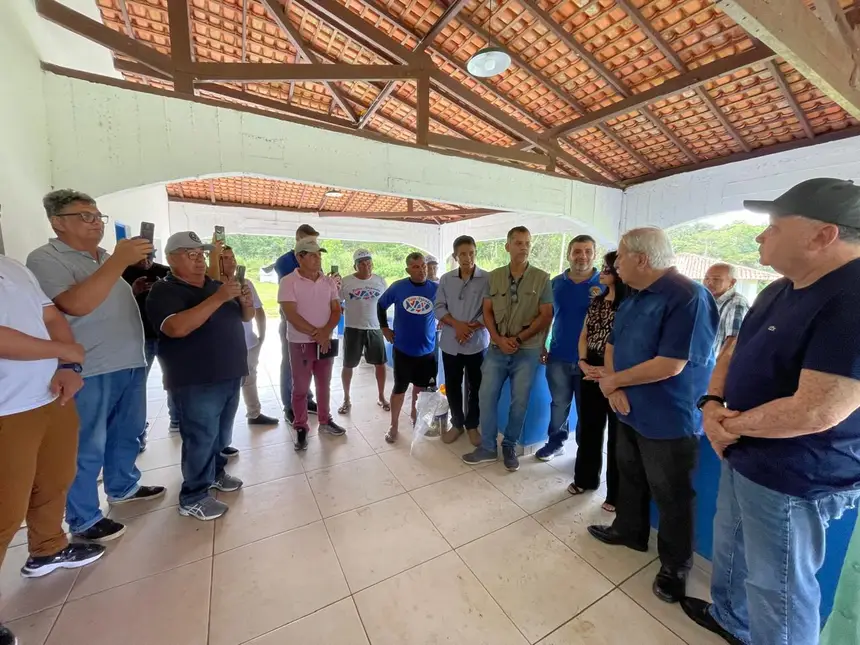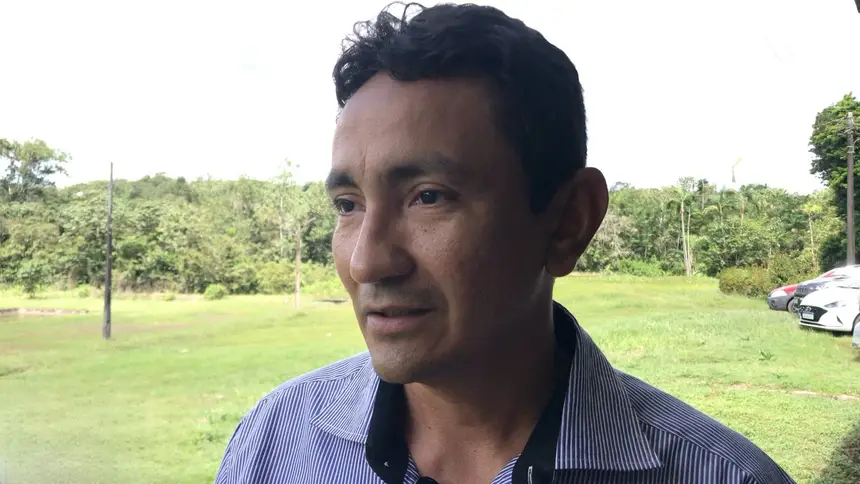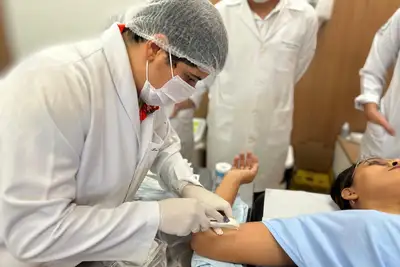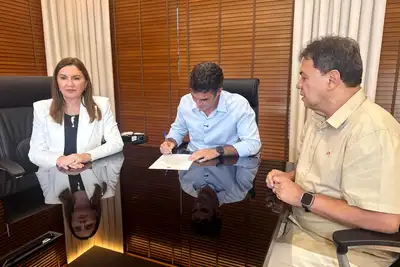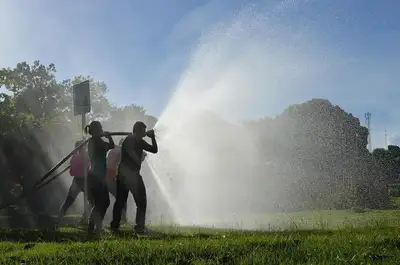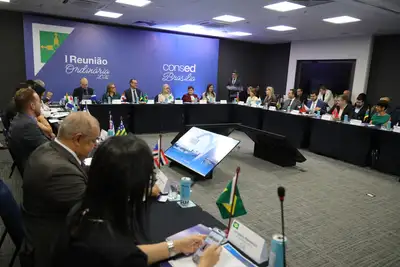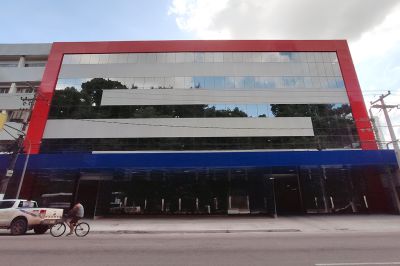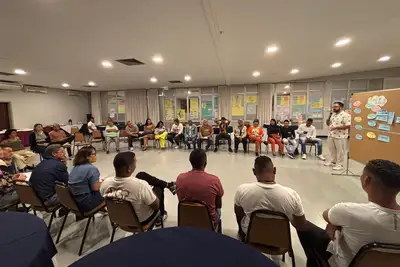Government of Pará strengthens fish farming with the transfer of 150 thousand tambaqui fry to producers in five municipalities
Nearly 100 producers benefited from the distribution of tambaqui bred at the Terra Alta station
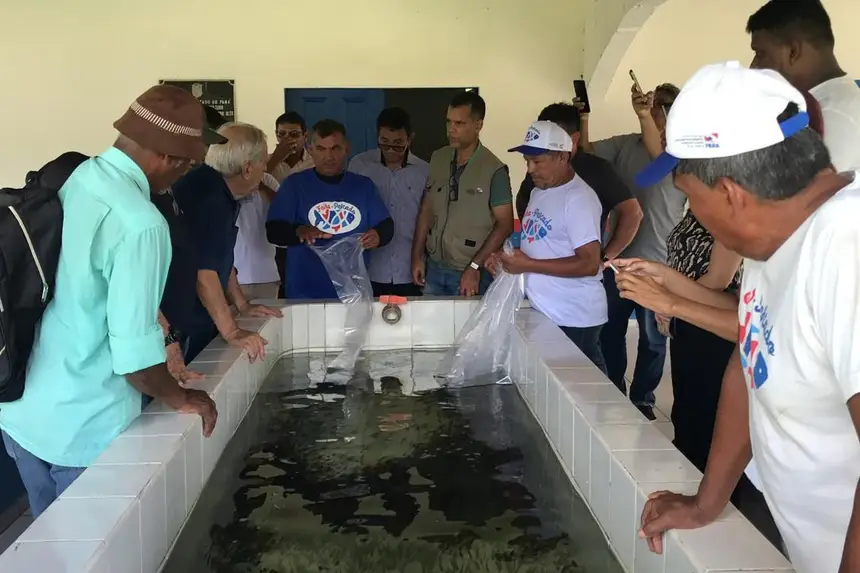
The Government of Pará, through the Secretariat of Agricultural Development and Fisheries (Sedap), transferred 150 thousand tambaqui fry in just two days this week. The action benefited about 100 fish farmers from the municipalities of Moju, Quatipuru, Castanhal, Magalhães Barata, and Itupiranga, reinforcing the state management's commitment to strengthening the aquaculture production chain, as well as boosting job and income generation in the countryside.
The main delivery took place on Thursday morning (8), at the Nina Orion Ribeiro Fry Breeding Station, in the Agricultural Unit (Uagro) of Sedap, in Terra Alta, in northeastern Pará. In this action alone, 120 thousand units were transferred to the participating municipalities. The day before, Itupiranga had already received 30 thousand fry.
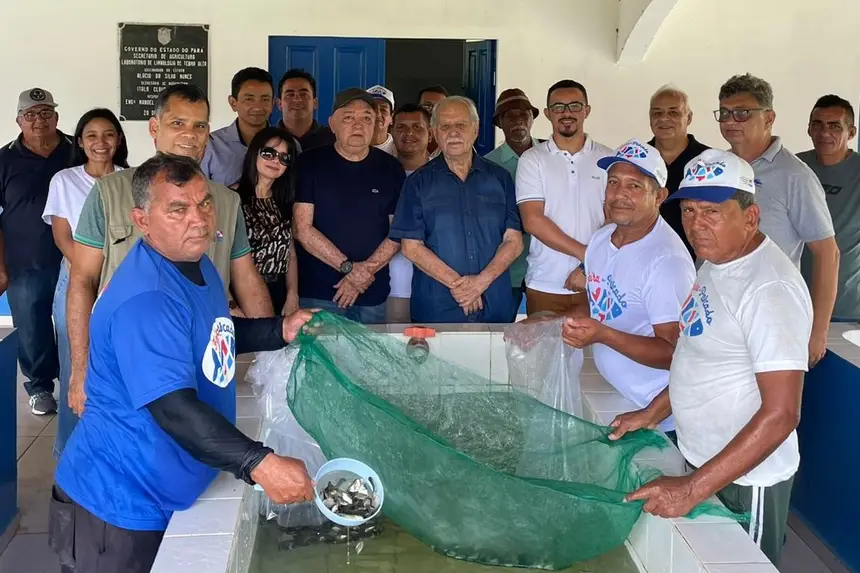
The head of Sedap, Giovanni Queiroz, accompanied by Deputy Secretary Wandenkolk Gonçalves and the technical team, oversaw the delivery. “This fry breeding center has a fantastic capacity. Today we delivered more than 100 thousand units and in two months we want to deliver another 200 thousand; we have to encourage this activity that generates income, as many producers depend on it. We have a perfect laboratory for this reproduction. We want to stimulate and guide our producers to generate income,” emphasized the secretary.
In addition to increasing production, the initiative directly boosts the economy of rural communities. In Quatipuru, for example, 10 thousand fry were delivered to small producers. Luiz Guilherme Dias, coordinator of the Sustainable Territories Program in the municipality, celebrates the partnership between the state and the city hall: “It is a great incentive for municipal management as well as for our producers. The municipality tends to grow in this aquaculture activity. This support is very important.”
In Moju, 16 thousand units were transferred. “This state incentive will help a lot, as we are seeking these partnerships for our population to improve their lives. Here it is giving us direction for the people in the countryside, especially the fish farmers,” highlighted Pedro Damilton, one of the beneficiaries in the city.
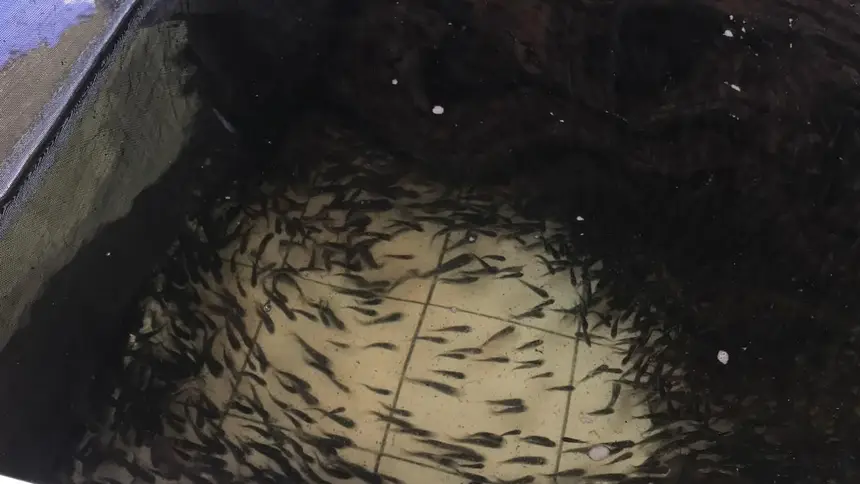
According to Deputy Secretary Wandenkolk Gonçalves, Pará is among the largest fish producers in Brazil, which is why actions like this enhance food security and the economic potential of the region. “Sedap has two stations; in addition to this one in Terra Alta, we have the one in Santa Rosa in Santarém. So the transfer of fry bred in these spaces is important; it is even a matter of food security for our population,” he stated.
Alan Pragana says, “Pará has grown 35% in aquaculture, and just in the last two days, more than 100 thousand fry have been transferred, along with deliveries of over 100 water analysis kits and supplies. We received feedback from most and we will replicate this over the years,” promises the aquaculture coordinator of Sedap.
For Rafael Pinto, from the João Batista II settlement in Castanhal, who has been dedicated to fish farming for over 10 years, the delivery of fry is a boost for the sustenance of many families. “Fish farming is a great investment; I have worked with dairy cattle and have not seen a better activity than aquaculture for generating income. So this delivery of fry is very good for us.”



